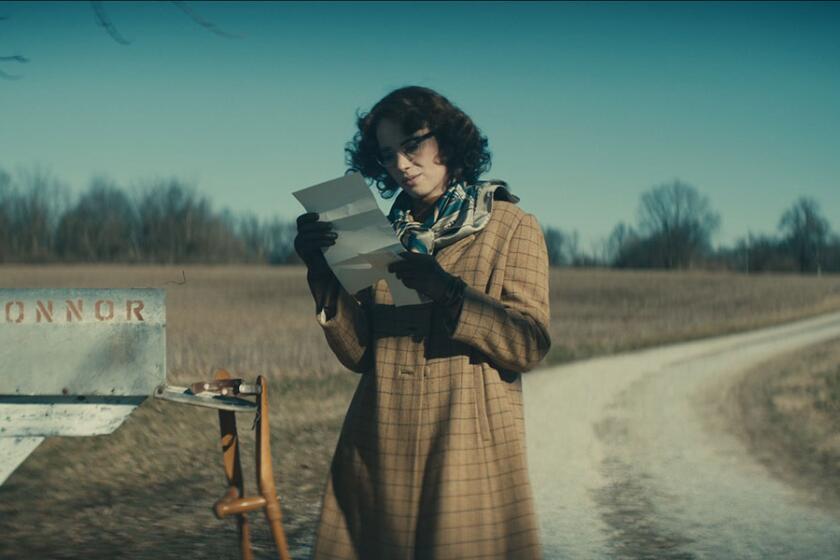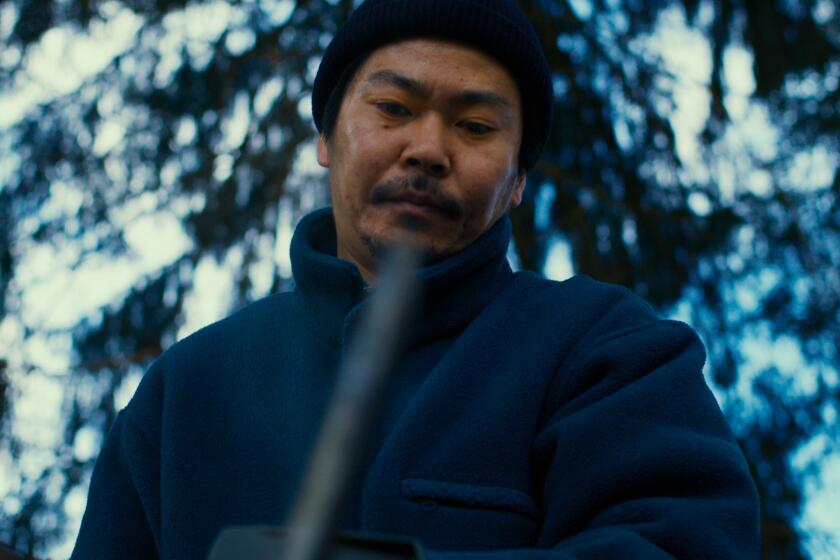Review: ‘The Black Tulip’ shows Afghanistan’s triumphs, tragedies
Made under challenging circumstances, “The Black Tulip” is an earnest melodrama about Afghanistan’s tumultuous recent past, told through the triumphs and ordeals of a progressive Kabul family.
In addition to co-writing, producing and directing, first-time filmmaker Sonia Nassery Cole, an Afghan American activist, took one of the lead roles after the actress originally cast backed out because of death threats against the production — “from militants,” per the press notes.
Cole aims for a sweeping saga, but her feature is hamstrung by on-the-nose dialogue and uneven performances. The film does, however, effectively portray a vibrant culture and its festive traditions, rarely evoked in depictions of a nation long devastated by war.
Confusing onscreen dates notwithstanding, the narrative’s starting point is 2001, after the Taliban have lost control of the capital city. Hadar (Haji Gul Aser) and his vivacious wife, Farishta (Cole), return from exile to open the Poet’s Corner restaurant, on the site of the bookstore that years earlier put her father on the wrong side of Soviet occupiers.
While the villainous Taliban watch and wait, the eatery draws lines for its open-mike platform “where all voices are made free.”
The voices in “Black Tulip” declaim themes of renewed hope and freedom, while the plot’s grand gestures too often fall flat.
But in the details of a wedding, a game of buzkashi or the day-to-day life between the dramatic events, an untold story emerges.
More to Read
Only good movies
Get the Indie Focus newsletter, Mark Olsen's weekly guide to the world of cinema.
You may occasionally receive promotional content from the Los Angeles Times.






